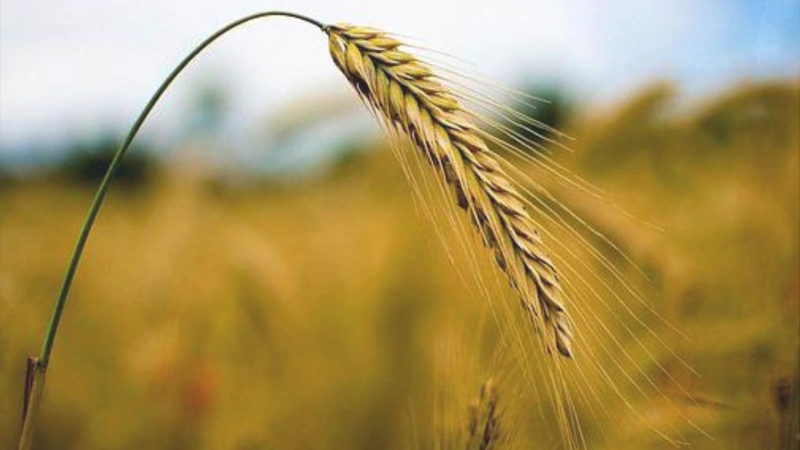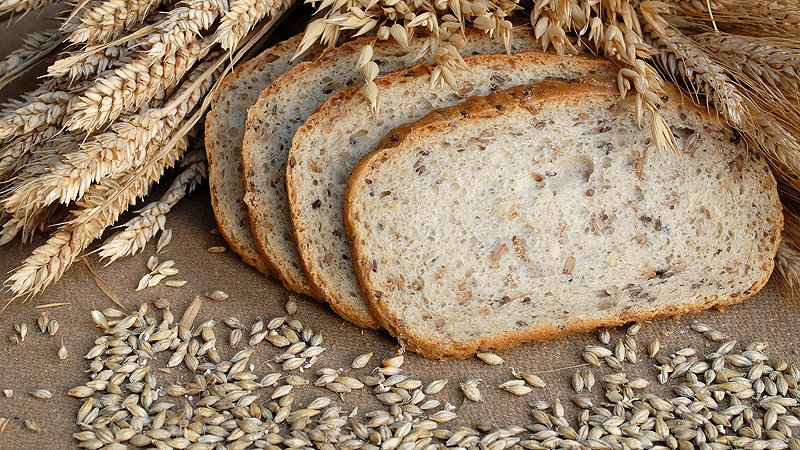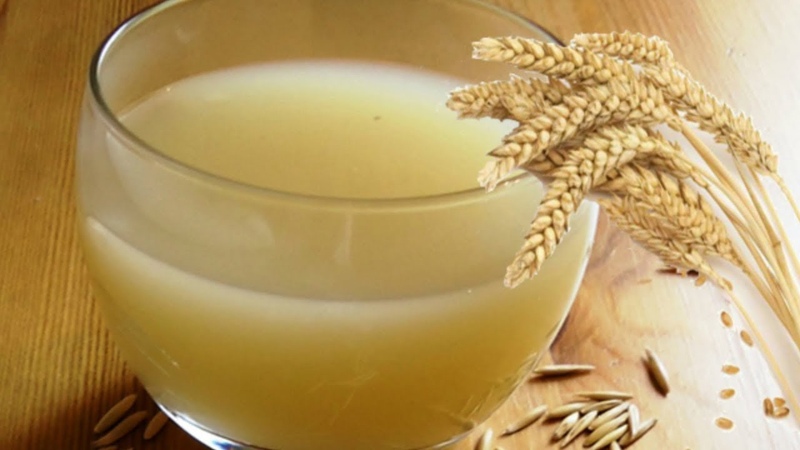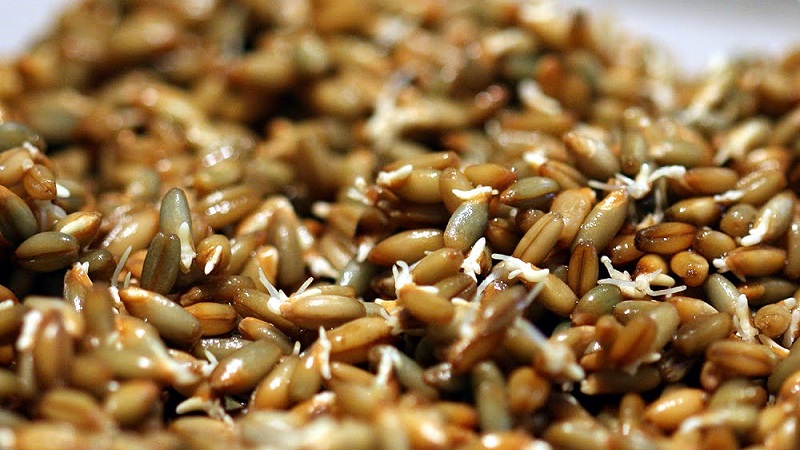Rye in traditional medicine: benefits and harms
Rye - a useful and ancient cereal, without which almost all northern peoples cannot imagine their cuisine. Bread, jelly, rye-based decoctions are not only a source of energy, but also natural medicines that allow you to recover from injuries, cure a sick stomach or reduce asthmatic attacks in a child.
The article will tell you about the beneficial properties of rye, its use in traditional medicine and contraindications for use.
The content of the article
- Composition and calorie content of rye
- Useful properties of rye
- Application in traditional medicine
- With diarrhea
- From parasites and worms
- With cardiovascular diseases
- To prevent heart failure
- For allergies
- For healing wounds and burns
- With diabetes mellitus
- From edema
- For weight loss
- To prevent gallstones
- For postmenopausal women
- For the prevention of tumor diseases
- Fiber from grains and fruits as protection against breast cancer
- Whole grains of rye and fish for asthma in children
- Cooking sprouted rye, recipes
- Contraindications
- Conclusion
Composition and calorie content of rye

In folk medicine, they often use not flour or flakes, but whole and sprouted grains or bran - they retain the maximum amount useful substances.
Rye contains:
- high-quality dietary fiber necessary for the intestines;
- vitamins A, PP, group B;
- betaine;
- sterols;
- phosphatides;
- macronutrients: potassium, calcium, sodium, phosphorus;
- trace elements: iron, manganese, copper, selenium;
- amino acids: arginine, tyrosine, valine, leucine, isoleucine;
- sprouted and whole grains contain fatty acids: folic, palmitic, stearic, linoleic, omega-3, omega-6.
The calorie content of whole and sprouted rye grains is slightly more than 280 kcal.
Useful properties of rye
Whole grains contain pantothenic and folic acids - these compounds strengthen the human cardiovascular system. Flakes, bran and cereal products have antioxidant and anti-inflammatory effects.
Doctors recommend using healthy cereal for patients suffering from diseases of the stomach or esophagus, kidneys, and bladder.
Important! Be sure to include rye in the daily diet of people with diabetes.
Grain improves hormonal levels in women after 40 years, restores strength after stress, operations and injuries.
Application in traditional medicine
Besides cooking healthy food (bread, cereals, jelly), rye is actively used in folk medicine. Properly cooked grains help fight diabetes, vascular and gastrointestinal tract diseases, relieve colds.
For bronchitis, pneumonia and cough you will need:
- 2 tbsp. l. rye bran;
- 0.5 liters of cold water.
The bran is poured with water, boiled over low heat for about 10 minutes. The broth infused for an hour can be taken immediately warm, in the amount of 2 tbsp. l. every 4 hours.
With diarrhea

The recipe is almost the same as for bronchitis, but instead of bran, you need 3-4 tbsp. l. whole grains of rye. A decoction of grains is given to the patient every hour until the symptoms are relieved, then every 3-4 hours until complete recovery.
From parasites and worms
Children have been treated for parasites and worms for rye for more than a decade. For this, 1 tbsp. l. the bran is soaked in warm milk and given to the child in a third, to the adult - 0.5 cups twice a day for a week. Then take a break for 6 days and repeat the treatment.
With cardiovascular diseases
For diseases of the heart and blood vessels, doctors recommend eating rye in any form.
Useful:
- whole wheat bread;
- sprouted grains;
- crispy rye bran, which is consumed in the morning with juice instead of flakes;
- whole grain infusions.

Vitamin B6, which is rich in cereals, improves protein absorption, accelerates metabolism, releases energy from glycogen, thereby alleviating cardiovascular diseases.
Phosphorus, which is perfectly absorbed from any rye product, helps the functioning of the heart muscle.
To prevent heart failure
Traditional medicine doctors recommend that patients eat 2-3 slices of whole rye flour daily to prevent heart failure. Bread is included in the diet of patients who have suffered a stroke or heart attack - phosphorus, B vitamins, potassium and fatty acids have a positive effect on the restoration of blood vessels.
Reference. Research on the effects of rye on cardiovascular patients has been conducted on 21,000 volunteers at Harvard for 20 years. For men who ate cereals containing rye grains daily for breakfast, the risk of developing heart failure decreased by almost 30%.
For allergies
Seasonal allergies and allergic dermatitis are softened by rye bran decoction:
- rye bran - 50 g;
- hot water - 1 liter.
How to cook:
- Pour the bran into hot, but not boiling water.
- Wrap the vessel in which the medicine is being prepared, leave to infuse overnight.
- Strain the broth, add to the bath and lie in it for about 20 minutes.
The procedure is repeated every evening for 7 days.
For healing wounds and burns
The stalks and grains of rye are thoroughly chopped in a blender with lard in a 1: 1 ratio. The resulting mixture is boiled over a very low heat for about 10 minutes, then cooled. Apply to the affected skin twice a day.
With diabetes mellitus

Grains boiled in hot water can normalize blood sugar levels.
Diabetes sufferers are advised to eat a handful of healthy cereal bran every day, as well as prepare a decoction: a glass of rye for 1.5 liters of water.
Recipe:
- The grains are poured with boiling water.
- Simmer over low heat for about an hour.
- The infusion is filtered, cooled and stored in the refrigerator.
It is better to take the infusion in the morning on an empty stomach, 0.5 tbsp., Then three times a day, 2-3 tbsp. l. an hour before meals.
From edema
For edema caused by kidney problems, an infusion of cereal stalks helps.
You will need:
- rye stalks - 2 tbsp. l .;
- hot water - 2 tbsp.
The stems and cereals ground in a blender or coffee grinder are poured with boiling water, insisted for an hour, then filtered.
Drink three times a day before meals, 0.5 tbsp.
For weight loss
Rye bran contributes to weight loss, decreased appetite and many associated obesity problems.
The bran rich in B vitamins and fiber, swelling in the stomach, create a pleasant feeling of fullness for a long time. Coarse fiber is an excellent breeding ground for beneficial microflora, stimulates peristalsis and cleanses the intestinal walls.
Reference. Bran can be consumed in the form of crunchy cereals for breakfast or dinner with any unsweetened fermented milk product.
To prevent gallstones
In order not to slag the body and prevent the appearance of gallstones, eat a handful of crunchy rye fiber flakes daily or add a spoonful of ground flakes to a glass of natural yogurt.
Doctors say that with such a diet, the risk of stones is reduced by 20%, if you add green vegetables and red fruits to the diet, by more than 50%.
For postmenopausal women

Women suffering from diabetes and heart disease, as well as susceptible to the development of benign tumors, during menopause should definitely eat rye flakes, sprouted grains and bran.
Rye normalizes hormonal balance, which makes it easier for women to feel better.
Reference. According to a study in the United States in 2000, women who consume daily rye products in old age are significantly less likely to suffer from stenosis and atherosclerosis, as well as from problems associated with gastrointestinal diseases.
For the prevention of tumor diseases
Many scientists, including Professor Rui Hai Liu, MD, of the American Institute for Cancer Research, believe that a diet high in fiber, specifically rye, reduces the risk of colon cancer. Research on this issue continues now, the effectiveness has not been proven.
Fiber from grains and fruits as protection against breast cancer
In the UK, studies were carried out on almost 36 thousand women who ate a diet rich in fiber for several years. After 10 years, it turned out that, unlike their peers who did not eat whole rye and additional servings of vegetables, the risk of breast cancer in the studied group of women decreased by almost 40%.
Reference. Women who were predisposed to the disease due to genetics or hormonal problems who ate rye bran and vegetables, the risk of tumors decreased by 50%.
Whole grains of rye and fish for asthma in children
Every year more and more people suffer from asthma, among whom the number of children, including very young ones, is growing.
International studies of allergies and asthma in children have found that increasing the diet of whole grains of rye and fresh fish leads to a 50% decrease in the risk of the disease.
It is interesting:
How to make moonshine from rye at home.
What kind of cereal is made from rye and its useful properties.
Cooking sprouted rye, recipes

The composition and content of active microelements changes during the emergence of sprouts in cereals. Fats are slowly converted to fatty acids, while carbohydrates are converted to light sugars.
It is easy to germinate grains. For this you will need:
- whole, quality grains, unboiled;
- saucer;
- gauze;
- warm water.
The grains are washed with running water, laid out on a saucer, covered with gauze. The fabric is sprayed every 10-12 hours from a spray bottle. After 24 hours, the grains can be washed and consumed.
Second way:
- the grains are washed with running water;
- placed in a small jar;
- pour in lukewarm water;
- the neck of the jar is covered with gauze.
Every 8 hours, the grains are washed and filled with fresh water. After 3-4 days cereals with young sprouts you can eat.
Contraindications
For people suffering from an increased concentration of gastric juice, as well as patients with stomach ulcers and gastritis in the acute stage, any whole grains are not recommended for use.
Rye bread and bran are not given to babies under one and a half years old, as well as adolescents and adults during an exacerbation of gastritis.
Conclusion
Able to prevent many diseases, rye should be in the daily diet of all health-conscious people. Rye flakes or bran for breakfast, a slice of rye bread for soup or sandwich, sprouted grains in a salad are a great way to prevent such dangerous ailments as hormonal problems, diabetes, asthma, obesity, and heart failure.